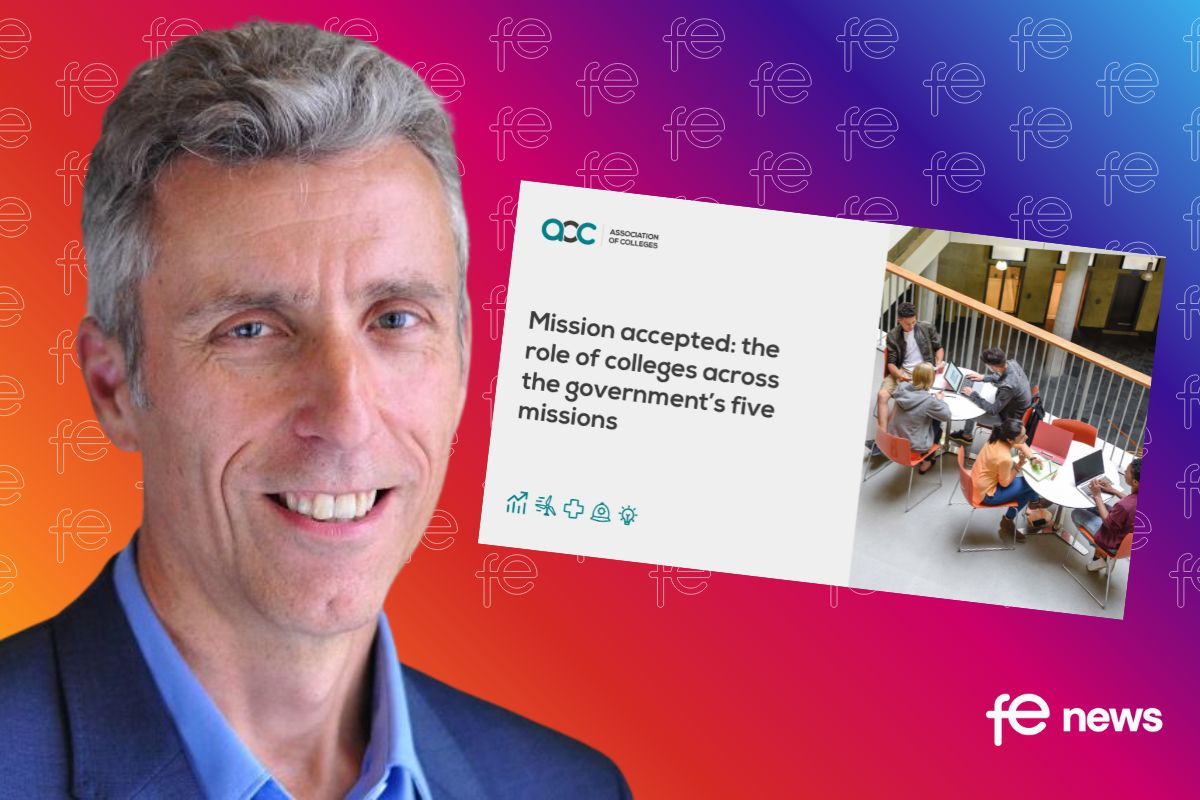Professionalisation in Further Education: are we moving in the right direction?

As the Further Education (FE) sector continues to seek wider recognition of the pivotal role it plays in the education ecosystem, we should ask ourselves if a greater focus on professionalisation is the answer? Isha Sachdeva explores what professionalisation could mean for FE, sharing some of the initiatives seeking to achieve it, and considers what is currently holding it back.
Professionalisation is a very interesting concept with varying definitions. To put it simply, it refers to the process of increasing the status, recognition, and qualifications of those who work in a sector or area.
However, within FE, the concept is particularly unique because of its complex nature – catering to the interests of so many diverse individuals at different stages of their careers and with differing levels of experience.
The ubiquitous inconsistency around what constitutes professionalisation in FE is one of the biggest hinderances for its consistent implementation across institutions.
Yet there’s a clear acknowledgement that to transform further education, recruitment and retention of excellent teaching staff and access to high-quality training and professional development throughout are only the prerequisites.
According to the Skills for Jobs White Paper, published in 2021, 59% of teaching staff are not satisfied with the opportunities available to develop in their career. Furthermore, 52% of those who left the sector said that more training and opportunities would have made them less likely to leave.
This is disheartening to see, as the goal of professionalisation is to improve the quality of education and training in the FE sector – and to ensure that FE staff have the skills and knowledge necessary to meet their own learning needs, the needs of their students, and the current and future needs of the rapidly evolving labour market.
But it’s not all doom and gloom. Many institutions have taken great strides forward to improve the quality of their teaching and support services. They are laser-focused on providing teachers and learners with a more personalised and engaging learning experience.
At NCFE, we see this evidenced every year through our Aspiration Awards which always sees hundreds of nominations for outstanding work being done in colleges and by teachers themselves looking to upskill.
A key example of FE professionalisation in action is the Centre of Excellence, developed by WorldSkills UK and NCFE in partnership. The programme aims to supercharge the quality and delivery of technical and vocational education by providing educators with world-class training and skills development, based on international best practice.
Around 2,000 educators have benefitted from the programme so far, supporting around 37,000 students and apprentices – and we’d like to see this extend even further.
Quality training and support for higher qualifications
By offering professional development and growth opportunities to FE teachers, and encouraging staff to pursue higher qualifications, there’s no doubt that professional standards can be improved in the sector.
Research Further, a joint initiative by NCFE and the Association of Colleges (AoC), is sponsoring Masters or PhD level qualifications for 11 FE practitioners and scholars, and is a prime example of how institutions can unlock the reservoir of potential to professionalise the sector.
This landmark initiative not only targets key issues existing in the sector, such as a lack of adequate research and innovation, but also promotes collaboration between FE colleges and universities.
The research carried out by these scholars will look at the specific gaps within the FE sector and share evidence-led findings to influence policy and the working environment. The majority of the scholars have already started their journey and will be making significant progress on their research topics in the coming years.
Leveraging the use of technology
While the world is talking about technological advancement and AI-powered systems like ChatGPT, there’s a much broader scope to bring its benefits to professionalise the FE sector.
Automation and online platforms can be used to improve efficiency and enhance the learning experience for teachers and learners. Using AI-powered systems can not only support accessibility but also offer tailored learning capabilities and streamline processes.
If now is not the time to access the wealth of information and resources at our fingertips and use these tools to our advantage, then it’s hard to imagine when it will be.
Improving pay and working conditions
Despite efforts to raise the status of teaching in the FE sector, the pay and recognition received by teachers is generally considered to be low. The Skills for Jobs White Paper highlights key issues around attracting and retaining high-quality teachers, stating that ‘more than half of principals say they find recruitment difficult’ and that ‘in 2018 teaching vacancy rates in crucial subject areas such as engineering and construction were as high as 5%.’
Over the past five years, the government has launched several policies and initiatives to improve professionalisation in the sector, such as the Skills for Jobs White Paper, Education and Training Reforms in 2017, and the Lifetime Skills Guarantee in 2021. It has, however, also received flak for not providing adequate funds.
Alongside professional development opportunities, something that can truly accelerate professionalisation in the sector is fair pay and benefits. There’s a pay gap between schools and colleges and an Association of Colleges report last year – College Staffing Challenges in 2022 – highlighted an estimated 6,000 job vacancies in England’s colleges – the most in two decades.
Various other elements also contribute to professionalisation, such as working towards developing a more diverse and inclusive workforce, developing stronger partnerships with businesses and industry to enable innovation and knowledge transfer, and greater emphasis on continuous improvement and access to better resources.
Getting the basics right
Overall, while professionalisation has been well-intentioned in its efforts to date – and we must celebrate the successes we’re seeing in this area – there are some definite challenges that need to be tackled at various levels for FE to truly take a step in the right direction.
No matter how you define it, without certain fundamentals in place, it will be challenging to ever truly move forwards.
Isha Sachdeva is Head of Insight and Impact at NCFE and has spent her career working in further education, higher education, and management consulting. She holds expertise in research, market intelligence and data analysis and is passionate about making a difference in the world of education.












Responses